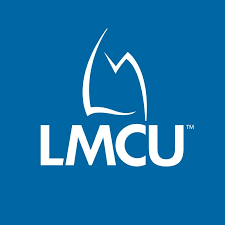Lake Michigan Credit Union allows opportunities for anyone to join, having access to their attractive programs and rates. In this Lake Michigan Credit Union doctor mortgage loan review, we’ll help you understand how the program works and see how it compares to others.
About Lake Michigan Credit Union
The Lake Michigan Credit Union was founded in 1933 as a teacher’s credit union.
Today, it is open to residents of Michigan and Florida but also to anyone nationwide who contributes at least $5 to the ALS (Amyotrophic Lateral Sclerosis) Foundation.
- BBB Score: A+
- CEO: Sandra Jelinski
- Phone number: 800-242-9790
- Services offered: Personal and business banking, lending, and investing
Lake Michigan Credit Union Physician Loan: Fast Facts
Here are some quick facts about Lake Michigan Credit Union physician loan products.
- Financing options: 0% up to $1 million, 5% up to $1,250,000, 10% up to $1,500,000, 20% up to $2 million
- Maximum loan amount: $2 million
- Qualifying degrees: Medical, dental, and orthodontic
- Private Mortgage Insurance: Not required
Lake Michigan Credit Union Physician Loan: Qualifications
Lake Michigan Credit Union makes securing financing for doctors simple. The only downside is the much larger down payment required if you need to borrow over $1.5 million.
- Down payment: 0% – 20%, depending on the loan amount
- Eligible Degree: MD, DDS, DMD
- Position: Resident or established doctor, dentist, or orthodontist
- Cash requirements: No minimum cash on hand is required after closing
How to Apply
Knowing how the Lake Michigan Credit Union doctor mortgage application process works can help you get approval faster.
1. Apply for Pre-Qualification
In our Lake Michigan Credit Union Doctor mortgage loan review, we discovered how easy it is to apply for pre-qualification. LMCU offers an online option, or you can call and speak to a loan officer to begin the process.
This part of the process is informal. You don’t provide documentation at this point. However, you discuss your income, assets, targeted home price, and current debts to determine if you’re a good candidate for an LMCU physician loan.
This isn’t a formal approval, but it can help you understand how much you can borrow and what your costs will be.
2. Obtain the Necessary Documents
After receiving a pre-qualification, you should gather the documents required to apply for the loan. You should do this before looking at homes so you have all your ducks in a row and can sail through the approval process.
The documents an LMCU underwriter will look for include:
- Income documentation: You must prove how you will afford the loan by proving your income with paystubs and W-2s. If you haven’t started working yet but have an employment contract, discuss this option with your loan officer to see if they can accept it as proof of income.
- Savings: You must prove to LMCU that you have enough money to cover the required down payment and closing costs. You can prove this with two months of bank or investment statements.
- Degree: You must prove you are a medical doctor, dentist, or orthodontist with the appropriate degree to be eligible.
- Employment information: LMCU will verify your employment, so you must provide contact information for your employer and ensure all information you provide is accurate.
3. Apply for Pre-Approval
A pre-approval is the next step after prequalifying for a mortgage. A pre-approval requires LMCU to pull your credit, and you must provide the underwriter with the necessary documents to prove you can afford the loan, as discussed above.
The pre-approval letter shows how much you can borrow and on what terms. It will also discuss the conditions you must clear before LMCU can close the loan. This includes an executed sales contract, home appraisal, and a clear title search.
You can use the pre-approval letter to show sellers you are an approved buyer, and they are usually good for 60 to 90 days.
4. Clear the Conditions
Your pre-approval letter will include the conditions you must satisfy. Most of the conditions you cannot clear until you find a home, including the executed sales contract, home appraisal, and title search.
If your letter includes any other conditions, you can work on clearing them while you look for a house. They may pertain to your income, specific debts, or assets. Keep in contact with your loan officer to ensure you clear the conditions and are on track to close by your contracted date.
5. Close the Loan
The last step is to close your loan! Before you do, you must lock in an interest rate. LMCU offers competitive rates, and you can usually lock it in as soon as you have approval. Remember, though, that locked-in rates expire, so ensure you choose a term that doesn’t expire before your contracted closing date.
At the closing, you’ll sign documentation, including the mortgage and note, which make you legally liable to pay the loan back as agreed upon in the loan terms.
Discover The Best Lenders Answer just a few questions about your career, where you're buying, and how much you want to borrow. Our service will then show you the exact programs you're eligible for from vetted physician loan specialists who will guide you through every step of the process – obligation-free!
Lake Michigan Credit Union Doctor Mortgage Loan: Alternatives
The Lake Michigan Credit Union doctor mortgage loan is a great option, but there are alternatives to consider.
Huntington Bank
Huntington Bank offers 100% financing for some medical professionals and doesn’t require Private Mortgage Insurance. You can request a fixed or adjustable-rate loan and are eligible if you are a doctor (medical or osteopathic), dentist, or veterinarian. Like most banks, Huntington Bank doesn’t charge a prepayment penalty for repaying the loan early.
Fifth Third Bank
Fifth Third Bank offers a unique opportunity for established doctors to borrow a physician loan. Like LMCU, you can secure 100% financing on loans up to $1 million but need a down payment if you borrow anything higher. Fifth Third offers fixed and adjustable-rate loans, and they don’t charge Private Mortgage Insurance even with no money down.
BMO Bank
BMO Bank offers a physician loan program starting with a 5% down payment on loans up to $1.5 million and 10% on loans up to $2 million. They exclude some student loan debt if it’s deferred, and you can get approved before you begin working if you have an executed employment contract.
Fulton Bank
Fulton Bank offers a physician loan with no down payment of up to $1.5 million. If you borrow more, you’ll need 5% down on up to $2 million and 10% down on up to $3 million. Fulton Bank allows sellers to help with closing costs, and you can use gift funds for the down payment. They offer both fixed and adjustable-rate loans.
Pros and Cons
Pros:
- No down payment is required for up to $1 million
- No cash-on-hand requirements
- No PMI required
Cons:
- Only applies to doctors and dentists
- You must belong to the credit union to apply
- May need up to 20% down for large loan amounts
Frequently Asked Questions
How much money can I borrow with a Lake Michigan Credit Union physician loan?
How much money you can borrow depends on what you can afford. You must prove you have the income to afford the payment and the savings to cover the required down payment. It’s important to keep your payment affordable so you don’t get in over your head.
Are only doctors eligible for the Lake Michigan Credit Union physician loan?
Some physician loan programs are for other medical professionals, but LMCU restricts the program to doctors and dentists, including orthodontists. Unlike other lenders, they don’t open it to professors, medical researchers, pharmacists, or veterinarians.
What credit score do you need for a Lake Michigan Credit Union physician loan?
LMCU doesn’t state the minimum credit score they require; however, it’s best to have as high a credit score as possible. Aim for a score of 700 or higher for the best chances of approval.





